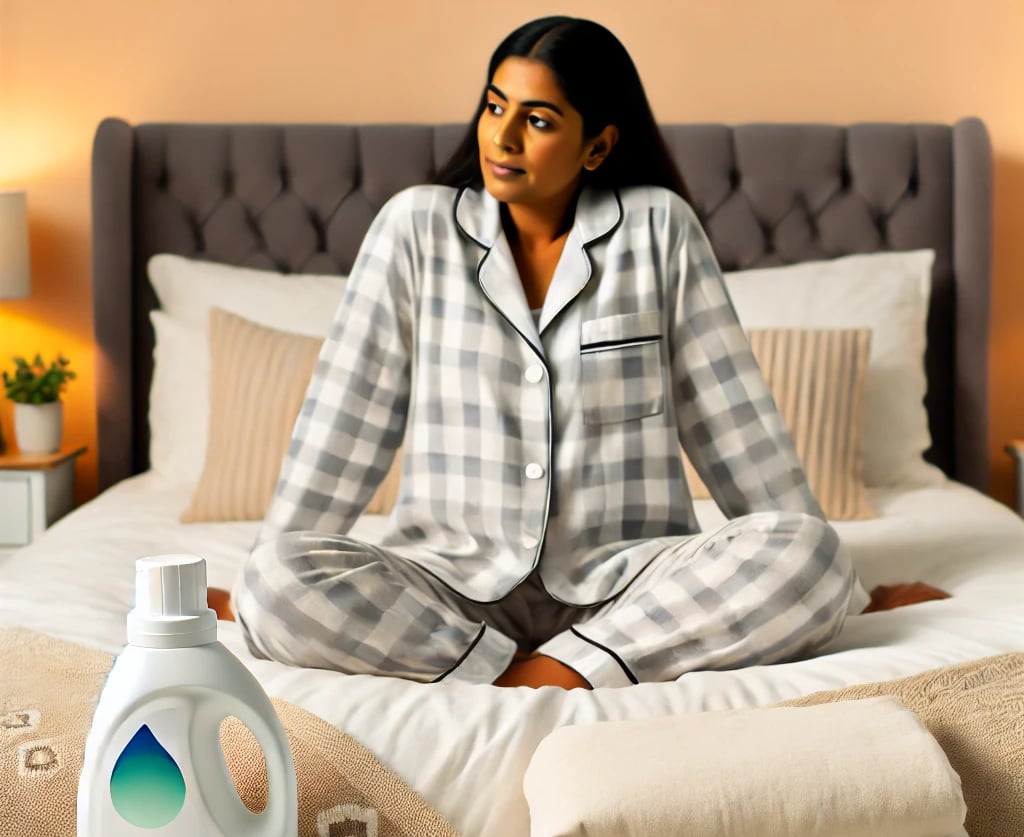Is Your Laundry Routine Affecting Your Sleep Quality?
Is Your Laundry Routine Affecting Your Sleep Quality?
10/22/20243 min read


We all know the bliss of slipping into clean sheets at the end of a long day. But beyond just feeling nice, fresh bedding plays a crucial role in improving your sleep quality, mental well-being, and even physical health. Research suggests that regular laundry routines can help reduce allergens, dust mites, and bacteria, which can disrupt sleep. Let's dive into how clean bedding supports restful sleep and offer simple ways to enhance your laundry routine for a better night’s rest.
How Clean Bedding Impacts Sleep Quality
1. Reduces Allergens and Dust Mites
Your bedding collects dust, dead skin cells, and moisture every night. These elements create the perfect environment for dust mites and allergens, which can trigger sneezing, nasal congestion, and itchy skin during the night. Research by the American Lung Association shows that regularly washing sheets and pillowcases helps minimize these allergens, promoting healthier, uninterrupted sleep.
2. Improves Skin Health and Prevents Acne
If you’ve been experiencing breakouts on your face, neck, or shoulders, your pillowcase might be the culprit. The American Academy of Dermatology (AAD) advises changing pillowcases frequently because they absorb facial oils, sweat, and product residue. Regularly washing your pillowcases can prevent pore blockages, reducing acne flare-ups and giving you healthier skin.
3. Boosts Mental Well-Being and Comfort
Fresh bedding isn’t just about hygiene—it contributes to mental relaxation. According to research by the National Sleep Foundation, people sleep better and feel more relaxed in clean sheets, as the fresh scent promotes calmness. Sleep hygiene practices, including regular laundry routines, signal to your brain that it’s time to unwind, helping you fall asleep faster.
Simple Laundry Tips to Improve Sleep Quality
1. Wash Sheets Once a Week
To reduce allergens and bacteria, aim to wash your bedsheets and pillowcases at least once a week. During warmer months, you may want to wash them more frequently to manage sweat buildup.
2. Use Hypoallergenic Detergents
If you have sensitive skin or allergies, switch to fragrance-free and hypoallergenic detergents. These products are gentle on both your skin and fabrics, reducing the risk of skin irritation and allergic reactions while you sleep.
3. Avoid Fabric Softeners and Dryer Sheets
Fabric softeners and dryer sheets leave a waxy coating on fabrics, which can irritate sensitive skin. Instead, use wool dryer balls or a bit of vinegar in the rinse cycle to keep fabrics soft and static-free without any residue.
4. Rotate and Air Out Bedding
Keep multiple sets of bedding on hand to rotate them regularly. When not in use, air out stored bedding to prevent mildew or odors from forming.
5. Keep Pillows and Mattresses Clean Too
Washing your pillowcases frequently isn’t enough if the pillows themselves are dirty. Wash pillows every 3-6 months, depending on the type. Consider using mattress protectors and vacuuming your mattress periodically to reduce dust buildup.
The Mental Health Benefits of Clean Bedding
Research by the Health Science Forum shows that clean, organized spaces—including your bed—have a positive impact on mental well-being. Establishing a consistent laundry routine can reduce stress by creating a sense of control and comfort. Knowing that your bedding is clean provides peace of mind, making it easier to relax and enjoy restful sleep.
Conclusion: Better Laundry Habits = Better Sleep
Improving your laundry routine isn’t just a chore—it’s a powerful way to enhance your sleep quality and overall health. Fresh bedding reduces allergens, supports healthy skin, and creates a soothing sleep environment. By washing your sheets regularly and using gentle detergents, you can prevent breakouts, enjoy deeper sleep, and wake up feeling refreshed.
The path to better sleep is as simple as keeping your bedding fresh. Start small by committing to weekly washes, switch to skin-friendly detergents, and notice the positive changes in your sleep and well-being. Clean clothes and bedding mean better sleep—and better sleep means a healthier, happier you.
place order now
quick laundry services within 90 mins.
Contact
dailyminutes drycleaning & laundry service
© 2024. All rights reserved.
Run by - ChitChat FM Technologies Pvt Ltd.